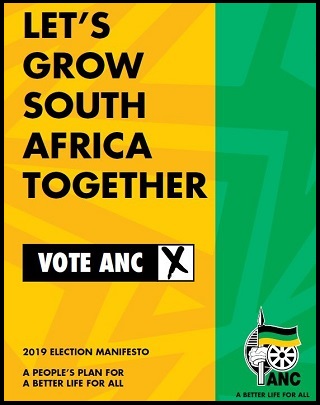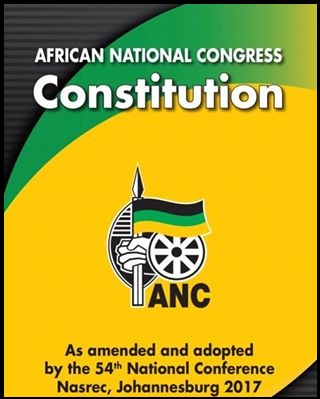As we prepare to hold local government elections on 3rd of August, we call upon our councillors, as elected representatives of the people, to draw on and emulate the values not just of the great leaders of the organization like Isithwalandwe/Seaparankoe Comrade Madiba but the founding values of the organization itself. These values include selflessness, humility, and discipline, and above all, an unwavering commitment to the communities they have been elected to serve.
In reflecting on the attributes of an exemplary concillor, we should not confine ourselves to the signing of a Code of Conduct. At the heart of the guiding values of a councilor is guiding and safeguarding the National Democratic Revolution: selflessly performing one’s tasks without failure, and prioritizing our people’s needs above all.
We remember the words of the country’s founding father: “What counts in life is not the mere fact that we have lived. It is what difference we have made to the lives of others that will determine the significance of the life we lead.”
Our Councilors must be agents of transformation.
Theirs is a role of partnering with communities to ease the burden of the marginalized in our country. They serve as the interface between the citizens they represent and the municipal officials who design and implement development policies.
The job of the councilor is not just to serve the needs of their communities; they are also tasked with the role of watchdog; to ensure municipalities implement the policies of the ANC.
The governing party has identified long-term key service delivery priorities for all our communities, as articulated in the ANC’s 2016 Local Government Elections Manifesto.
Incoming councilors are expected to work tirelessly to meet the expectations of our people. We know that unless these are adequately addressed, the result is frustration and anger.
As we crisscrossed the country, during our door-to-door campaign, it was evident that people love the ANC and despite our challenges, still view it as their political home.
The ANC government’s track record speaks for itself, particularly in areas like housing, health, access to water and electricity, and social security amongst others.
Despite our numerous successes, we know that more needs to be done to correct a massive legacy of under-development, and to rectify the systemic imbalances created and sustained by apartheid.
During our campaigning, our people openly expressed their views on the necessary areas of improvement as we continue with the tasks at hand.
It was affirmed during our engagements with communities that where there is effective and transparent oversight by councilors of municipal progress with service delivery, combined with feedback to residents on progress, residents appear to be more satisfied with service delivery, because they are aware of the challenges facing the municipality and what is being done to address the situation.
Speaking at an ANC meeting during the first local government elections back in 1996, Madiba said “The councilor is a social reformer. His or her duty is to change the bad conditions under which the people live. He or she does not use promises and slogans to change the situation. He or she tells the truth all the time- and builds partnerships on the basis of the truth as it shows itself in the situation at hand”.
Democracy is based on an active citizenry.
Let us promote the advancement of our organs of civil society for purposes of creating effective partnerships at local community level.
Where there are shortcomings, it is critical for us to self introspect and self correct to ensure accelerated delivery in critical areas like schools, clinics, libraries, and the provision of social amenities, particularly in our townships.
The Freedom Charter is clear: “The people shall govern”.
Translating this foundational value into practice means that every step the councilor takes in the direction of governance, they cannot do so in isolation from the people who will be most impacted by these same initiatives.
For example, when developing programmes like youth development, broad partnerships with professionals, the youth themselves, the parents and the community at large must be forged.
People’s Power resides at community level and our councilors are the link in unifying the first and second phases of our National Democratic Revolution.
The first phase of our struggle involved the struggle for national liberation and democracy. It included various forms of engagement, including the obliteration of all manifestations of white supremacy, the unification of all progressive formations, the conceptualization of the post-apartheid society, the recognition of the centrality of the Tripartite Alliance.
This broad tactical alliance succeeded in speeding up the demise of the apartheid regime.
The second phase of our Revolution is arguably the more laborious of the two – and involves a totally different type of engagement.
This engagement is generally termed transformation and its key theme is satisfying the expectations of the oppressed.
Like in the previous phase, the success of this second phase relies primarily on partnerships.
Councilors have to realize and act on the urgencies of social transformation. Partnerships are a prerequisite to the success of our socio-economic transformational agenda.
It is incumbent on bodies such as ward committees (who have the statutory mandate to ensure regular development, training and capacitation) to ensure that their operations are not ad-hoc and voluntary, in pursuance of their functions.
In this regard, legislation ought to be subjected to regular review to ensure relevance to changing socio-political dynamics.
Having learnt from some of the challenges of the past, incoming councilors must embrace the broad vision of the ANC for communities.
They must reshape the nature of the relationship between citizens and government through the promotion of citizens’ participation in decision- and policy-making.
The communities must reflect vibrancy of social developmental programs in the facilities that are provided by the government.
As espoused in the NDP, our government must continue to encourage the formation and funding of organs of civil society for assisting in building the required capacity for community development and social transformation.
Inter-departmental cooperation must be encouraged between departments that have a stake or whose mandates are relevant to the area of need.
Consultative workshops must be convened with social workers to advise on how best the government, community and civil society organs could cooperate.
Ward Committees must be elevated to statutory organs and capacity-building programs should be developed. There is a clear need to equip councilors with the technical skills needed for developing budgets as well as their implementation, as well as to ensure that they are able to manage finances pertaining to ward level development.
Learning networks should be developed between elected local leaders and officials in municipal administrations. This would enable lessons to be learned between municipalities that are struggling with service delivery challenges and those that are performing well, facilitated by effective political leaderships.
Effective coordination of service delivery between the widely distanced administrative units must be achieved through proper ICT structures. These could include functioning emails and teleconferencing facilities etc. In this way councilors are be able to access information about all service units centrally, without the need to physically travel to these departments located in other towns.
The ANC as the governing party has emphasized that in order for councilors to be effective, they must be capacitated on an ongoing basis to enable them to deliver on their mandate.
The conduct of a councilor, good or bad, impacts on our glorious movement – the ANC.
To quote Tata Mandela again, “A good head and a heart are always a formidable combination and consequently, the councilor’s work must reflect the communities aspirations”.
The ANC in the course of delivering on its revolutionary mandate has faced challenges; but we have internalized the feedback we have received from our communities, and as the saying goes:” if you know better, you do better”.
In this spirit, we expect that our councilors will remain loyal, disciplined to carry out their revolutionary responsibilities as the true servants of the people.
Councilors must convene regular community meetings. With strong and meaningful partnerships and engagements, we can expect accelerated service delivery not only for some but also for all our people in this lifetime.
Forward to Advancing People’s Power in Every Community!
CDE BALEKA MBETE IS ANC NATIONAL CHAIRPERSON




